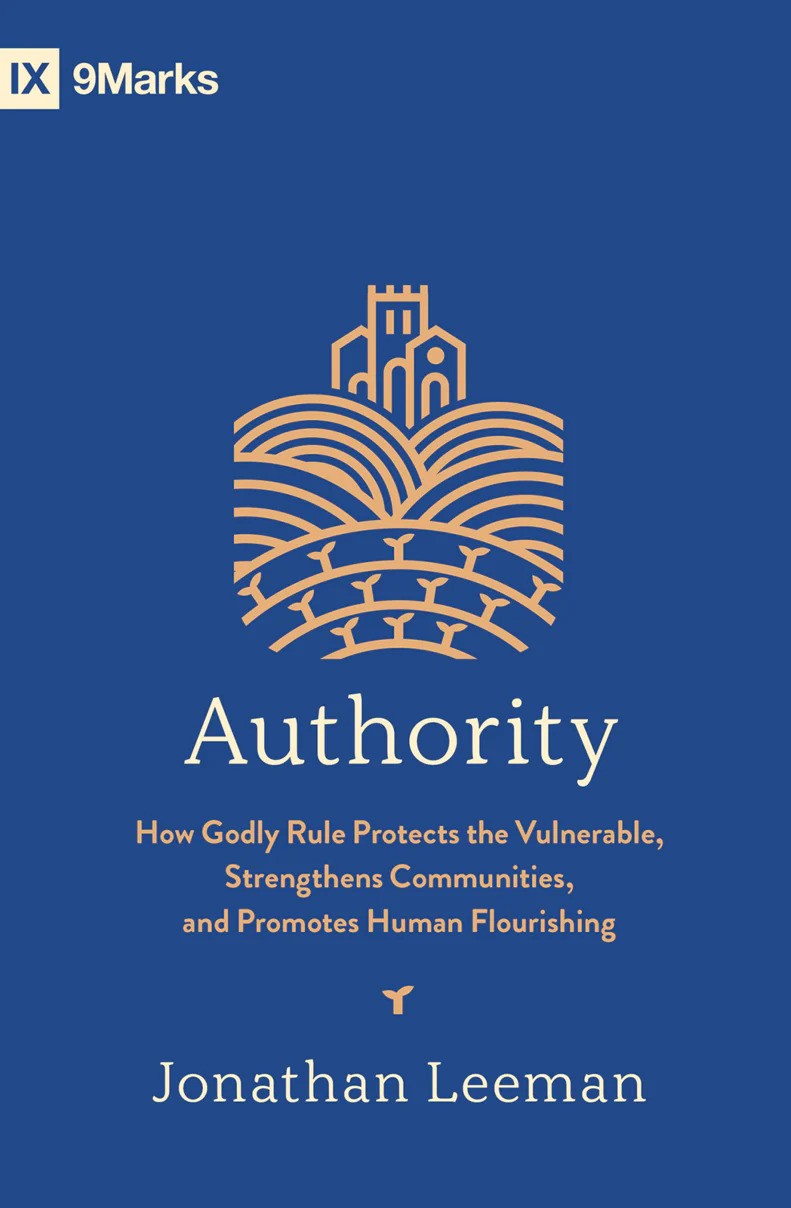There’s a good principle in ministry that says, for the issues that people find the hardest, raise the bar, don’t lower it.
To be sure, lowering the bar can feel like the right move. Don’t rock the boat. Don’t mention the war. Placate the masses and the seats will stay warm.
But there is one thing lowering the bar struggles to do, and that’s make disciples.
Whether it’s a tricky bit of theology or ethics, what brings maturity in the Christian life is rarely swallowing a pill that hurts less, or chewing on something so diluted it’s more liquid food than solid. People grow when the hard thing is shown to be relevant, and when the stakes are raised so high, they say: “Look, I don’t get all of it—but I’m starting to understand why God said it.”
In a word? People often just need the unadulterated truth.
Which brings us to Jonathan Leeman’s new book on Authority. Power, submission and obedience? Those are Bible words that make us squirm and shudder. But if you’re game, this book might make them worthwhile.

Authority: How Godly Rule Protects the Vulnerable, Strengthens Communities, and Promotes Human Flourishing
Jonathan Leeman
Authority: How Godly Rule Protects the Vulnerable, Strengthens Communities, and Promotes Human Flourishing
Jonathan Leeman
In every position of power lies the potential for life-giving leadership or destructive corruption. Driven by sinful pride or opportunism, many people abuse their God-given influence, harming the ones they’re called to lead and contributing to an intense angst against authority. The answer to bad authority, however, is not no authority, but good authority—the kind that, according to Scripture, causes those under it to flourish.
Authority in the West
The Western world has a hate–hate relationship with authority. Every age has had their difficulties, “but we in the enlightenment West have given that resistance moral and philosophical respectability” (2–3). Governments are corrupt. The police are racist. Language is a weapon. Even Mum and Dad are just washed-up mouthpieces of an outmoded disciplinarian past.
And there is some truth here. Life is full of oppressors, victims, sadnesses and abuses—as many of us know all too well. Leeman’s own vulnerability in this book is palpable. Like him, many of us have felt authority gone terribly wrong, and it hurts.
And yet what would our world be if we went without authority at all? Letting authority run rampant is oppressive. But rejecting authority can be problematic too (6-7). It leaves us powerless, and ineffective: no one taking responsibility to see our world thrive. What we need isn’t less authority (or more). What we need is a model that works.
What we need isn’t less authority (or more). What we need is a model that works.
Authority in the Bible
Leeman’s definition is simple: whether in your marriage, church or workplace, godly authority authors life (9, 19, 24). You can see it in the contrasts: bad authority takes and destroys; good authority gives and creates. This is, after all, is what God is like. To give and to share; to love and to help—that’s who God is!
Leeman says this of Genesis 1–2:
By giving us authority, [God] gives us the opportunity to grow and … become like him. The creator teaches us to be creators, the ruler equips us to be rulers. (22)[1]
Our use of authority, in other words, teaches the world what God is like. Far from the bogeyman of church doctrines, ruling in love like Jesus is a kind of witness to the nations (28).
Authority under the Creator
Another of Leeman’s strengths is bringing some exactitude to his definition. What’s the difference between authority and power? “Power is the ability or capacity. Authority is the moral right or licence to use it” (24). What is the difference between our authority and God’s? His authority is something he is. Our authority is something we must be given (26). What are the limits of submission? “No human authority is absolute. Authority is always relative to the assignment given by the authority giver” (75).
Perhaps you can spot the theme? The underlying theology here is the inviolable fact that there are creatures, and a creator, and they are not the same thing. When it comes to authority, God is completely and utterly other.
Whether we are husbands, mothers, managers, or pastors, we serve at God’s pleasure, derive our authority from his power, and expect obedience from others only insofar as he allows. Authority in this sense is always derivative. It comes from God, must be shaped like God, and is always for God’s life–giving purposes alone.
Authority in this sense is always derivative. It comes from God, must be shaped like God, and is always for God’s life–giving purposes alone.
And if we stop to think, isn’t that how the incarnate Son of Man saw himself? Not my will, but yours be done? The life and death of Jesus is a picture of how godly rule creates and authors life(43–59).
Authority Today
One of the most pastorally helpful contributions this book makes is differentiating the authority of command and the authority of counsel (149–165).
Parents mostly operate by command: they yell when their kid runs across the road, and they exact discipline when they finally catch up and sit them down. They’re kids, after all.
Husbands and elders, on the other hand, do not have that authority. They do not make people do things; they implore them. Because the gospel operates on grace, and because the goal of their authority is spiritual, that’s how their authority operates too.[2] They share, they warn, they encourage, they ask—but they never force. That’s grace. That’s the limit. That’s the privilege.
They share, they warn, they encourage, they ask—but they never force. That’s grace. That’s the limit. That’s the privilege.
And I think that’s why I have been so enamoured with Leeman’s premise. For sure, there are things to critique. For those of a less congregationalist persuasion there are a few points where we might differ about the nature of authority in churches, in particular. But it’s the thesis I love. For far less than an obstruction to the gospel, authority is a picture of Jesus’ very life and ministry to us (Eph 5:22–33). It’s a ministry he gives to us to share in, and it’s a ministry he sees as a good for the world.
This is a practical, careful, humble book, and I pray it helps make biblical authority good again.
As David said in his final words as Israel’s king:
When one rules justly over men,
ruling in the fear of God,
he dawns on them like the morning light,
like the sun shining forth on a cloudless morning,
like rain that makes grass to sprout from the earth. (2 Samuel 23:3–4)
That’s our Lord Jesus, and by the Spirit it can be us too.
[1] I have some reservations about using the language of “creator” to describe the mandate for humanity in Genesis, especially vis-à-vis the uniqueness of God’s ability to create ex nihilo, but I trust that this is not the point Leeman implies.
[2] See Ephesians 5:22–33 for an example of how Paul sees husbands using their authority to help make their wives pure and holy.















